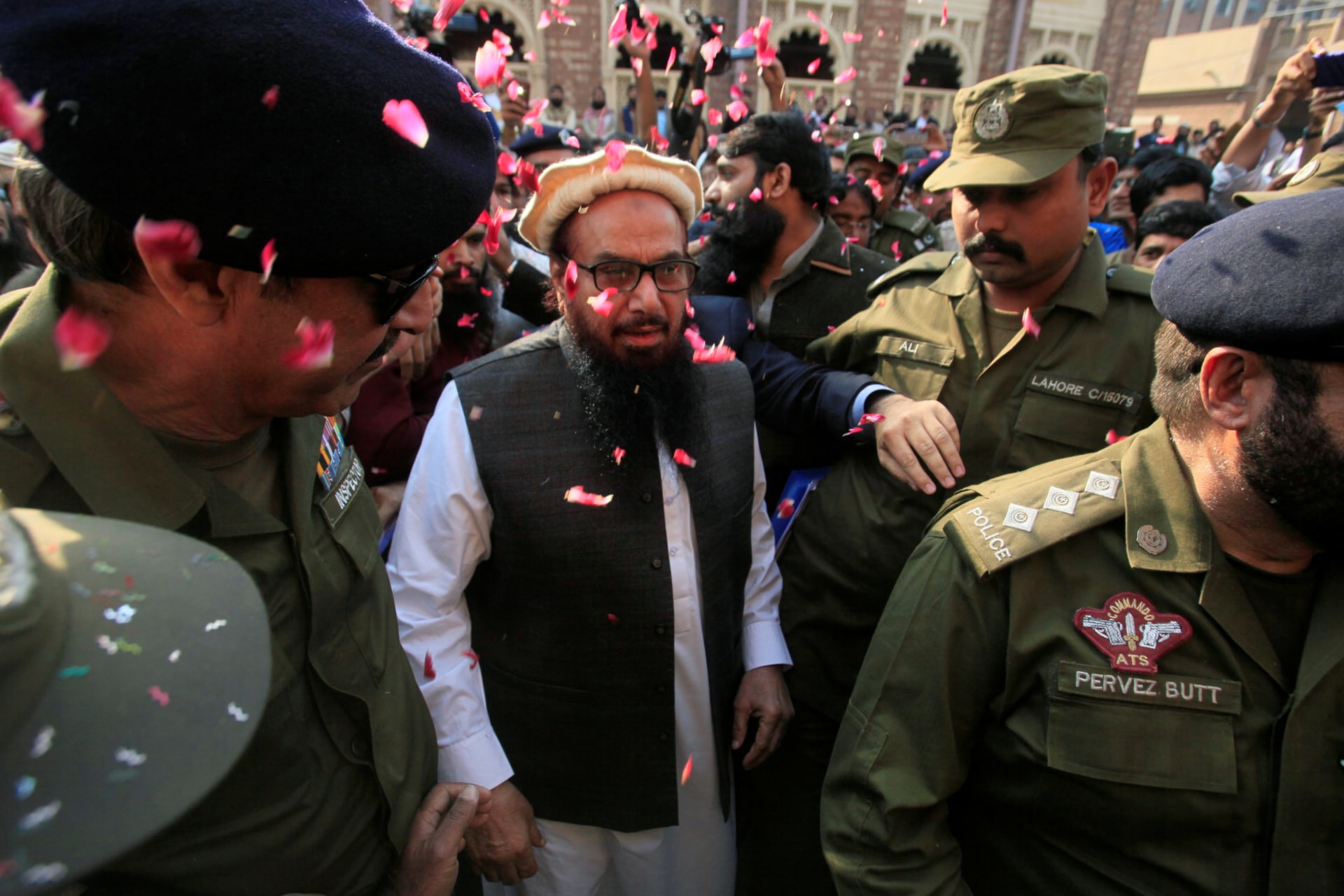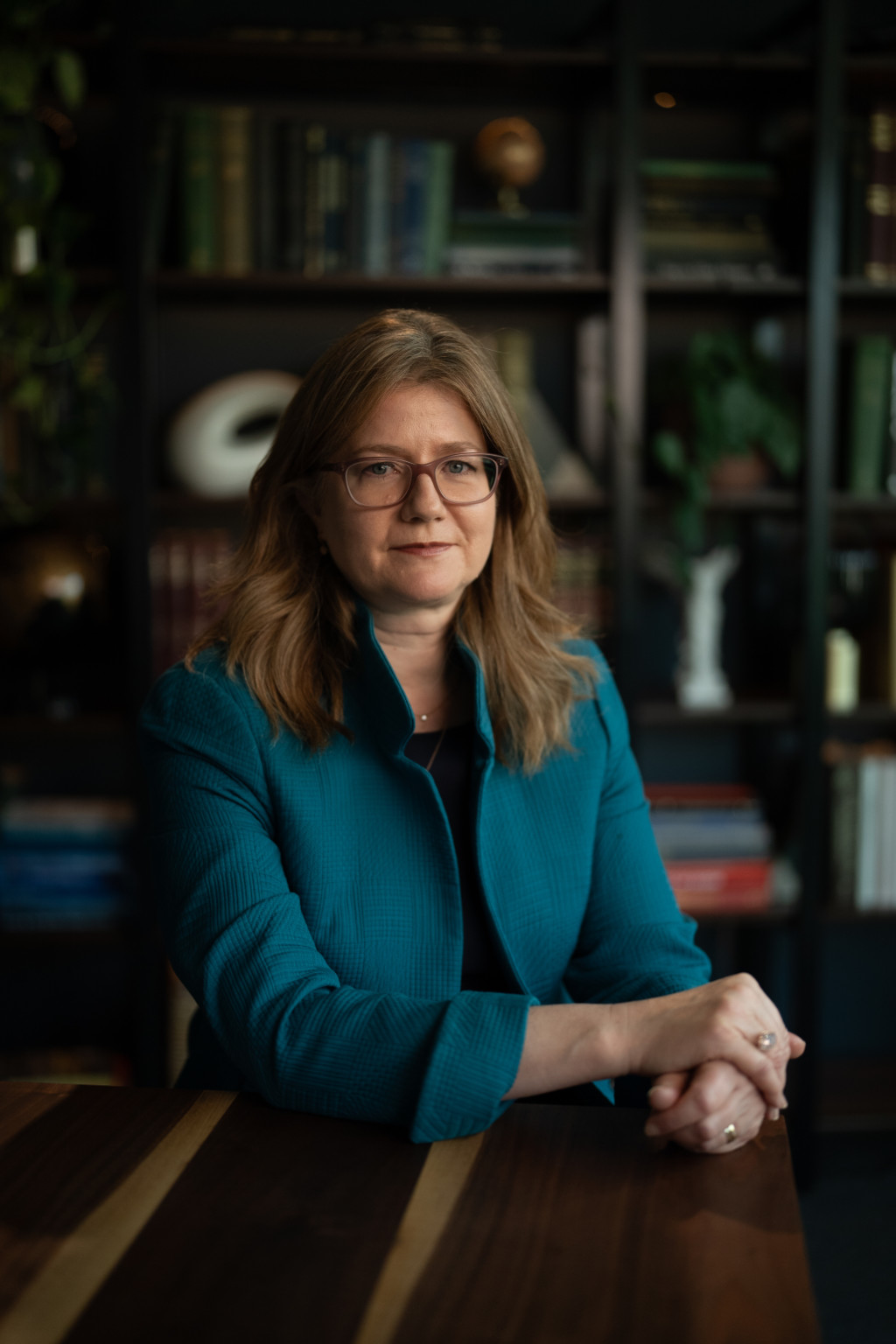Pakistan, Terrorism, and Meeting Trump
Yesterday news broke that Pakistani police had arrested Hafiz Saeed, founder of the UN- and U.S.-designated terrorist group Lashkar-e-Taiba.

By experts and staff
- Published
Experts
![]() By Alyssa AyresAdjunct Senior Fellow for India, Pakistan, and South Asia
By Alyssa AyresAdjunct Senior Fellow for India, Pakistan, and South Asia
Yesterday news broke that Pakistani police had arrested Hafiz Saeed, founder of the UN- and U.S.-designated terrorist group Lashkar-e-Taiba (LeT). The United States government holds this terrorist group responsible for the November 2008 Mumbai, India terrorist attacks. Saeed himself has been under UN and U.S. individual terrorism designations for years.
Arrest of a notorious designated terrorist sounds, on the face of it, like a good step for troubled, terrorism-addled Pakistan. The problem is that the whole world has seen this before, because Saeed has been on the catch-and-release carousel for years now. It’s hard to see this latest arrest as anything other than a tactical move, given Pakistani Prime Minister Imran Khan’s visit to Washington, DC next week.
The publicly available information about Saeed and his organization, the long-banned LeT, is now voluminous. ProPublica’s Sebastian Rotella authored an extensive series about the Mumbai attacks, in which the LeT’s role features prominently. U.S. citizen David Headley pleaded guilty in 2010 for his role aiding the Mumbai attacks, and the transcripts of his trial and legal proceedings implicate the LeT. Based on an Indian government request, Interpol sent out a red notice for Saeed all the way back in 2009. Pakistani authorities have variously arrested, detained, and released him over and over again. As the U.S. House Foreign Relations Committee tweeted, he has been arrested, only to be released, in 2001, 2002, 2006, 2008, 2009, and 2017.
Despite the international sanctions arrayed against him, Saeed has enjoyed a great deal of freedom within Pakistan. As I wrote here on Asia Unbound back in 2015:
What has Pakistan done to tackle terror groups operating from its soil? Pakistan selectively mounts counterterrorism campaigns in one part of the country, while permitting a UN and U.S.-designated terrorist organization, the Lashkar-e-Taiba, and its leader Hafiz Saeed to openly hold public rallies and continue “humanitarian” work and alms collection in its largest cities like Lahore and Karachi. The perpetrators of the 2008 Mumbai attacks have not been brought to justice either, with a trial submerged by delays ad infinitum, and with one of the conspirators released on bail this year.…These are only the barest outlines of the problem; suffice it to say that none of this looks like a state fighting comprehensively to rid the country of the scourge of terrorism.
Khan’s meeting with U.S. President Donald J. Trump next week is likely to feature one subject above all else: the negotiation with the Taliban to achieve a political agreement in Afghanistan and pave the way for a return of U.S. troops.
Although the negotiations appear to be making slow progress, ongoing Taliban attacks threaten the fragility of this process. And it is hard to see sustainable peace in Afghanistan as long as the array of interlinked terrorist groups in the Afghanistan-Pakistan region find safe haven in Pakistan (Saeed’s links to al-Qaeda were among the reasons for his individual designation on the UN Security Council al-Qaeda sanctions committee list back in 2008).
The Trump administration has taken a hard line with Pakistan on the question of terrorism, suspending all security assistance to the country since 2018. With U.S. support, the Financial Action Task Force (FATF), an intergovernmental monitoring group focused on countering terrorist financing and money laundering, has made increasingly blunt statements about Pakistan’s failure to comprehensively deal with financial flows to terrorist groups. Last year, the FATF once again placed Pakistan on the “gray list” of countries needing to take greater actions to prevent financial flows to banned groups. At the end of June, the FATF noted concern that
. . . not only did Pakistan fail to complete its action plan items with January deadlines, it also failed to complete its action plan items due May 2019. The FATF strongly urges Pakistan to swiftly complete its action plan by October 2019 when the last set of action plan items are set to expire. Otherwise, the FATF will decide the next step at that time for insufficient progress.
It’s hard to imagine a Trump-Khan meeting in a positive atmosphere if the most visible individually designated terrorist in the country remains at large. So a cynic will have trouble taking this arrest seriously as a good-faith step in tackling terrorism. It does, however, provide a minimum threshold at which Khan can say his government has taken action against Pakistan’s highest-profile terrorist.
But the past doesn’t offer much reason for optimism that Pakistan is at long last getting serious about this group.
Resources to learn more:
- UN Security Council 1267 Committee Sanctions List: narrative summary of reasons for designating Hafiz Saeed in 2008.
- Financial Action Task Force statement on Pakistan, June 2019.
- C. Christine Fair, In Their Own Words: Understanding Lashkar-e-Tayyaba. Oxford University Press, 2018.
- Stephen Tankel, Storming the World Stage: The Story of Lashkar-e-Taiba. New York: Oxford University Press, 2011.
- Tricia Bacon, “The Evolution of Pakistan’s Lashkar-e-Tayyiba Terrorist Group,” Orbis (Winter 2019), 27-43.
